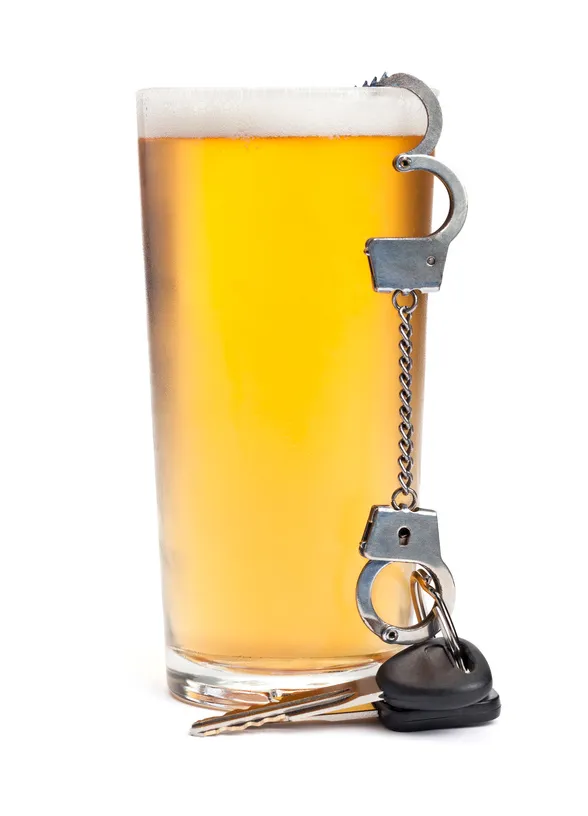- Act courteous leading up to and following your arrest.
- Call your lawyer
- Request a hearing to challenge administrative penalties
- See if you qualify for a restricted license to continuing driving
Did you know that DUI laws vary by state? Generally, the rule of thumb is that you will be arrested and charged with a DUI if you are driving with a blood alcohol content (BAC) of 0.08% or more. Some states may enforce convictions at any BAC over 0%. Similarly, a DUI in most states may entail an average of 10 days of jail time. In Arizona, that average can be closer to 30!

Knowing the differences in state laws, knowing what to expect, and knowing what to do and what not to do can be a tremendous help in an otherwise difficult time.
Do
- Act courteous leading up to and following your arrest. After being pulled over, the first thing to remember is to be responsive and polite. When you see the officer’s lights flash, put on your turn signal as soon as possible. Pull into the nearest parking lot or onto the nearest side street. If that is impractical, pull off into the emergency line or bike lane and pull as close to the side as you can. Be polite when interacting with the police offer. Pass over the requested documents. Try to stay as quiet as possible. If you worry that answering a particular question may hurt your case, respectfully express that you would like to talk to your attorney first.
- Call your lawyer. Do not go it alone. It is wise to call your lawyer or attorney as soon as you are able. In Arizona, DUI charges stand in nearly all cases. However, a lawyer can help you negotiate a plea with lower fines and fewer legal consequences.
- Request a hearing to challenge administrative penalties. Administrative penalties imposed by the Arizona Department of Transportation Motor Vehicle Division (MVD) pose a significant and lasting threat. Penalties put in place by the MVD will be honored unless you request a hearing to challenge them–even if other charges are dropped. For that reason, it is important to request civil hearings. At worse, a civil hearing delays legal consequences. At best, they may turn out in your favor.
- See if you qualify for a restricted license to continuing driving. DUI charges typically come along with a suspended license. You may be able to make the case for a hardship license in order to drive to and from work, school, alcohol treatment programs, or medically necessary appointments. If you qualify after receiving a DUI charge, you will likely meet with ignition interlock installers who will equip your vehicle with an ignition interlock device or car breathalyzer that you will need to blow into before starting your vehicle.
Don’t
- Needlessly incriminate yourself. If you have a bad back, terrible balance, and/or cannot recite the alphabet backward while sober, it behooves you to avoid doing it after drinking any amount of alcohol. It is okay to politely decline field sobriety tests. Remember, on the other hand, that Arizona law dictates implied consent. That means it is important to take blood tests, breathalyzer tests, and urine tests. Failing to do so will result in an automatic license suspension.
- Take chances. The most important lesson of being stopped for a DUI is that you cannot risk it ever happening again. Cooperate with law enforcement, government agencies, and ignition interlock installers to show that this behavior is out of character, and not your day-to-day norm. Following a DUI, it is also smart to look into alcohol treatment programs. Doing so will not further incriminate you, but help demonstrate that what happened was extreme and you are taking immediate measures to fix it.
How does an ignition interlock device work? Ignition interlock installers will place a device that interrupts the connection between the start and ignition until the user successfully passes a breathalyzer test. Know what to expect from Arizona DUIs–mandatory breath, blood, and urine tests, discussions with lawyers, and run-ins with ignition interlock installers–and do what you can to avoid another charge in the future.

 Can Someone Else Drive If I Have An Interlock Device?
Can Someone Else Drive If I Have An Interlock Device?